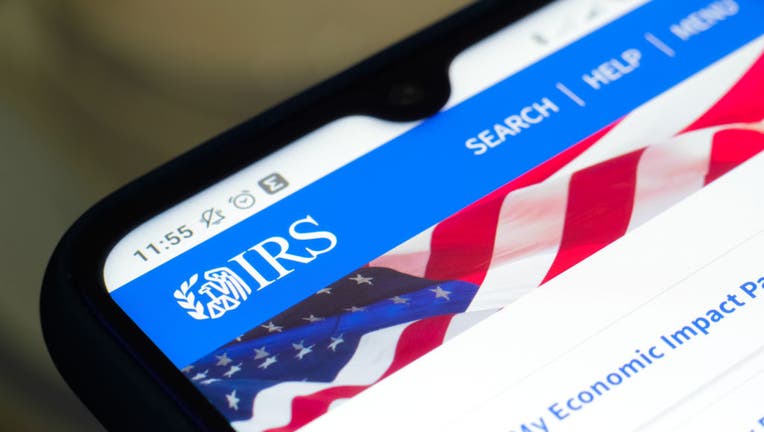IRS warns of new COVID-related scam

In this photo illustration the Internal Revenue Service (IRS) logo seen displayed on a smartphone. (Photo Illustration by Rafael Henrique/SOPA Images/LightRocket via Getty Images)
LOS ANGELES - The Internal Revenue Service, state tax agencies and the tax industry on Wednesday warned of a new text scam created by thieves that attempts to trick people into disclosing bank account information under the guise of receiving the $1,200 Economic Impact Payment.
The IRS, states and industry, working together as the Security Summit, reminds taxpayers that neither the IRS nor state agencies will ever text taxpayers asking for bank account information so that an EIP deposit may be made.
Get your top stories delivered daily! Sign up for FOX 11’s Fast 5 newsletter. And, get breaking news alerts in the FOX 11 News app. Download for iOS or Android.
"Criminals are relentlessly using COVID-19 and Economic ImpactPayments as cover to try to trick taxpayers out of their money or identities," said IRS Commissioner Chuck Rettig.
"This scam is a new twist on those we've been seeing much of this year. We urge people to remain alert to these types of scams."
The scam text, which contains a link to a fake phishing web address, states: "You have received a direct deposit of $1,200 from COVID-19 TREASFUND. Further action is required to accept this payment into your account. Continue here to accept this payment..."
The fake phishing web address, which appears to come from a state agency or relief organization, takes recipients to a fraudulent website that impersonates the IRS.gov Get My Payment website.
RELATED:
• 'EDD' rapper faces federal charges for unemployment insurance fraud
• California EDD says it'll be months before all backlog of claims are fulfilled
• EDD scams on the rise, dozens arrested in Beverly Hills
• 21 arrested in $250K coronavirus unemployment fraud scheme using California inmates' information
Individuals who visit the fraudulent website and then enter their personal and financial account information will have their information collected by the scammers.
People who receive the text scam should take a screenshot of the text message that they received and then include the screenshot in an email tophishing@irs.gov with the following information:
-- Date/Time/Timezone that they received the text message;
-- the number that appeared on their Caller ID; and
-- the number that received the text message.
The IRS does not send unsolicited texts or emails, nor does it call people with threats of jail or lawsuits, or does it demand tax payments on gift cards.
People who believe they are eligible for the Economic Impact Payment should go directly to IRS.gov.
People who do not have a filing requirement but who are eligible for EIP can use a non-filers tool on IRS.gov until Nov. 21 to claim their payment.

